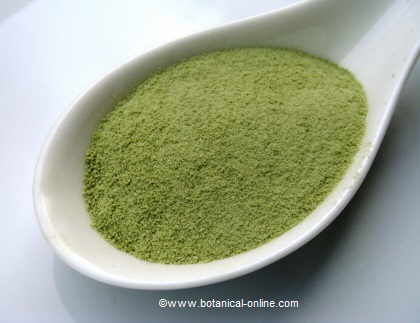Contents
The advantages of breast milk
What are the advantages of breastfeeding for the baby?
Breast milk is the most suitable food for new-born babies.
If possible between 4 and 6 months, milk should be the only food that these should take. If possible, it should extend to the year, although breast milk is combined with other foods.
Properties of breast milk
Between the most important properties of maternal milk we would have to mention the following:
- Maternal milk constitutes a complete food: It has all the necessary nutrients to feed the baby properly during the first 6 months of life. During this time there is no need to take something else to be well fed. It is very rich in vitamins, proteins, minerals and essential fatty acids. It contains enough water for proper hydration of the baby without any additional supply. No need to give water, enough to provide more milk. On the other hand mother’s milk is completely natural, without preservatives or dyes.
Maternal milk protects babies against infections and diseases: Breast milk is rich in antibodies, which protect the baby against external infections. Babies fed on mother’s milk have more resistance against diseases. It is usually very common for infants fed breast milk from his mother rarely sick. The diseases most commonly occur when weaning occurs. It has been found as infant mortality is lower in children who have been breastfed, especially those who had received during a year. There are many fewer cases of sudden death among infants who suckle. It has been found as breastfeeding for a minimum period of six months contributes to a lower incidence of childhood cancers and youth, protecting the child or the child until age 15. Breastfeeding for three months protects up to 40% compared to the possibility of developing diabetes occur even when diarrhea are to be fed with milk from their mother and should not be abandoned breastfeeding because the child has an illness. Among the diseases that protects the mother’s milk mention the following:
- Respiratory infections
- Herpes
- Meningitis
- Otitis
- Youthful rheumatoid arthritis
- Influenza
- Diarrhea
- Allergy
- Dermatitis of the diaper
- Syndrome of Crohn
- Multiple sclerosis
- Heartburn
- Diabetes
- Cancer
- Maternal milk favors the greater development of the mind: It has been verified that those children nursed with maternal milk present major intelligence coefficients and a greater mental development.
- Breastfeeding means less problems with diarrhea than bottle-feeding: Although well-sterilized bottles there is always a greater risk of stomach infections when the baby feeds on mother’s breast, as this is naturally sterilized milk and. In societies where drinking water is scarce or conditions are inadequate hygiene, breastfeeding is a good way to prevent diarrhea. It was found that cow’s milk is much more irritating to the intestines which helps to produce more cases of this disease.
- Breast milk has soothing properties for the baby: It’s very well known as the baby is calm after sucking the breast of the mother.
- Breast milk protects the mouth and stimulates the facial muscles: Children who suck their mothers’ milk have a lower teeth decay rates than those who take the bottle. At the same time, the act of breastfeeding is a strain to the muscles of the mouth that develop more strongly favoring protecting the gums and teeth healthier. These movements favor coordination and prepare the mouth for further development of language. It is thought that breastfed babies have a greater ability to speak better.
- Breastfeeding lasts for longer than cow’s milk: Breast milk, taken from the mother’s breast, can be kept up to 8 hours in cold temperate and in warm climates up to 4, therefore there is no need to heat it before drinking. Mothers, if they work, can pump milk from the breasts to feed the baby in their absence.
What are the advantages of breastfeeding for the mother?
To nurse the baby with the chest milk does not only suppose advantages for the baby. The mother also benefits when she makes this decision.
Between the advantages of giving to eat with the chest milk we would mention the following:
- Less probabilities of undergoing uterine hemorrhages: The beginning of the breastfeeding supposes a diminution of the hemorrhages of uterus in the mothers. This occurs by the contraction of the uterus that is adapted to pre-natal measures.
- Less incidences of cancer: It has been found that these women gave her breast milk to their babies have a lower incidence of breast cancer (especially in women who are about to enter menopause) of ovarian cancer and cancer of uterus. This percentage increases as the breastfeeding period is longer. It has also been seen as women who were fed breast milk have up to 25% less likely to develop breast cancer as adults.
- Less probabilities of suffering from osteoporosis: The maternal breastfeeding protects to the mother against the development of osteoporosis. Women who have not breastfed have four times more probabilities of developing this disease.
- Less development of endometriosis: Endometriosis or growth of uterine tissue outside the uterus is more likely to stop when a mother breastfeeds her baby.
- Breastfeeding lowers the level of blood sugar: It has been proved that women with high sugar levels, decreased the amount when nursing their babies with milk from her breast.
- Breastfeeding contributes to the loss of excess weight during pregnancy: Accumulation of excessive weight during pregnancy can be reduced by breastfeeding, especially in regard to the accumulated fat in the waist.
- Breastfeeding makes it easier for the mother: Breastfeeding is much easier than preparing a bottle, a task that requires knowledge of the process such as heating, disinfecting, etc.
- The act of breastfeeding is a satisfaction for the mother. A nursing mother is proud when she realizes that the baby is growing very healthy with the food that her body produces.
- The maternal breastfeeding generally distances the ovulation: It constitutes a natural form, although little trustworthy, to control the natality since the majority of the mothers, while they breastfeed, usually do not ovulate until a year after the childbirth. Nevertheless, it should be noted that, since there are many cases in which ovulation occurs during this period, mothers need to take some kind of alternative contraceptive method during lactation.
What are the advantages of breastfeeding for the relation of the baby and the mother?
- The act of breastfeeding establishes ties of affection and strong emotional between baby and mother. The baby feels loved and well treated by the mother. Nursing mothers are more relaxed than those who just prepare bottles. It has been found that child abuse cases are lower among mothers who breastfed their children. Moreover, breastfeeding is a release of accumulated tension in the psyche of the mother during pregnancy.
What are the advantages of breastfeeding for society?
Breastfeeding babies is interesting not only for mothers and babies. This act is also very interesting for society, especially poorer societies.
First, by reducing the number of diseases,it implies very big savings in medical treatments. It has been found that breastfed children visit the doctor less often, as they have a better general health than those who take the bottle.
Economically, breastfeeding involves much less expense, by not having to buy bottles, prepared milk, disinfectants, etc. From an ecological standpoint, it is clear that breastfeeding involves virtually zero environmental waste compared to bottle-feeding.
![]() More information about breastfeeding.
More information about breastfeeding.








